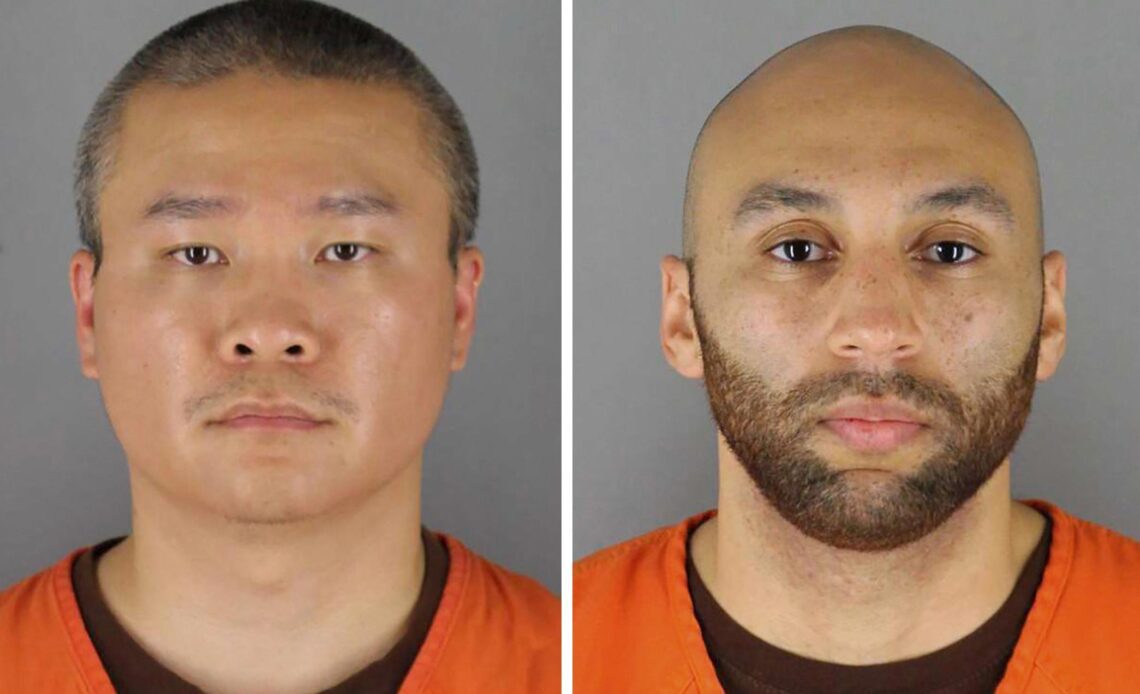MINNEAPOLIS (AP) — Another long and painful trial over the killing of George Floyd was averted on Monday after one former Minneapolis police officer pleaded guilty to manslaughter and another agreed to take a more uncommon approach and let a judge decide his fate based on the evidence in the case.
J. Alexander Kueng and Tou Thao had been set to stand trial Monday on charges of aiding and abetting both murder and manslaughter in the May 25, 2020, killing of Floyd, who died after another officer kneeled on the Black man’s neck, sparking worldwide protests as part of a broader reckoning over racial injustice.
Instead, Kueng pleaded guilty to aiding and abetting second-degree manslaughter in exchange for the murder count being dismissed. And Thao, who previously told the judge that it “would be lying” to plead guilty, agreed to what’s called a stipulated evidence trial on the aiding and abetting manslaughter count. The two sides will work out agreed-upon evidence in his case, file written closing arguments and let Judge Peter Cahill decide guilt or innocence.
If Thao is convicted, the murder count — which carries a presumptive sentence of 12 1/2 years in prison — will be dropped.
The day’s developments pushed the long process of prosecuting the officers involved in Floyd’s death nearer an end. Derek Chauvin, the white officer who pinned Floyd’s neck for 9 1/2 minutes as Floyd said he couldn’t breathe and eventually grew still, was convicted in state court in spring 2021 and later pleaded guilty to federal charges. A fourth officer, Thomas Lane, was convicted of federal charges in February and pleaded guilty to state charges in May.
Kueng knelt on Floyd’s back, Lane held his legs and Thao kept bystanders back during the restraint, which was captured on video.
Attorney General Keith Ellison, whose office prosecuted the state cases, said in a statement that he hopes Keung’s plea can bring comfort to Floyd’s family and “bring our communities closer to a new era of accountability and justice.” He also said his office is looking forward to a swift resolution of Thao’s case.
Thao waived his right to a jury trial, as well as his right to cross-examine the state’s witnesses, call witnesses of his own and testify. But he preserves his right to appeal. His attorney, Bob Paule, told The Associated Press that this allows Thao to still litigate the issue of his guilt or innocence, and “it’s ultimately up to the judge to decide…

